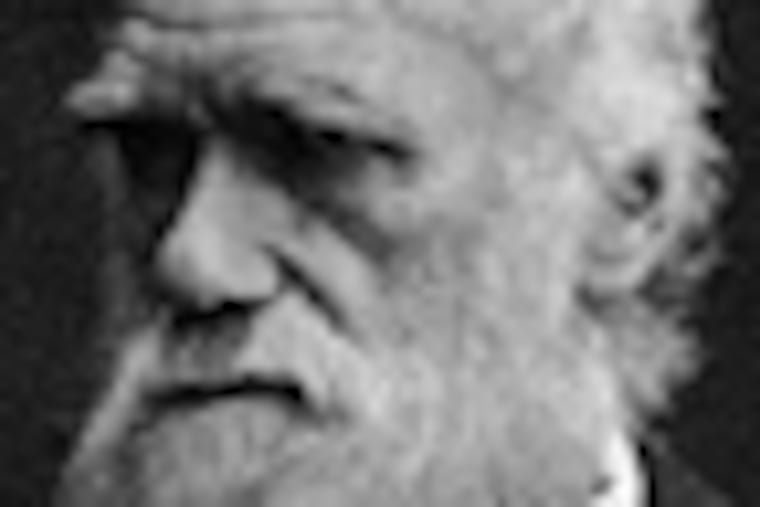Evolution remains largely untaught in American schools
Despite seeming victories for evolution over creationism in major court battles - most recently in Dover, Pa. - American students are still losing out when it comes to getting a solid biology education.

Despite seeming victories for evolution over creationism in major court battles - most recently in Dover, Pa. - American students are still losing out when it comes to getting a solid biology education.
A new report on a 2007 national survey of high school biology teachers found that most still didn't teach evolution adequately. And today, evolution is more than just a chapter in the biology field; it's the backbone of the whole discipline.
"Nothing counts in biology except evolution," said Haig Kazazian, former chair of genetics at the University of Pennsylvania School of Medicine and now a professor at Johns Hopkins University. There's a famous statement that captures evolution's central role, he said: that nothing in biology makes sense except in light of evolution. (It has been attributed to Russian biologist Theodosius Dobzhansky.)
The federal case that was decided in Dover five years ago didn't mandate the teaching of evolution; it ruled only against teaching a form of creationism known as intelligent design in science classes. Teaching standards in Pennsylvania and other states require classes to cover evolution, but that doesn't mean teachers follow them.
"We were very surprised that the state standards had virtually no impact," said Pennsylvania State University political scientist Eric Plutzer, one of the pair of researchers who conducted the survey of more than 900 teachers.
"We've seen highly publicized debates in Ohio, Kansas, Texas. . . . There's an awful lot of political capital and expertise that has gone into these standards, but, by and large, teachers completely ignore them," he said.
According to their report, published last month in the journal Science, 13 percent of high school biology teachers still teach creationism and about 60 percent of teachers are so anxious about teaching evolution that they avoid the topic.
That 60 percent may be doing more harm to science literacy than the 13 percent of creationist teachers, study coauthor Michael Berkman said.
Many Americans, if not the majority, believe in creationism, Plutzer added.
"This goes back to the question of who should be allowed to decide what's taught in public schools," he said. "It's a question that goes back to William Jennings Bryan before the Scopes trial."
Plutzer said many people feel evolution is antithetical to their values. "They claim it makes it harder to raise their children if they're being exposed to a humanistic worldview in their science classes."
In some cases, parents and school administrators put pressure on teachers not to follow the standards. In other cases, the teachers hold creationist beliefs.
The scientific community should take this study seriously, said Steven Newton, director of programs and policy at the National Center for Science Education.
What's new here is the attention drawn to the 60 percent of the teachers who "muddle in the middle," teaching little of anything.
What's the solution? Teach teachers evolution, Plutzer said. Many of those 60 percent in the middle are cautious about evolution, but they might be bolder if they had a better grounding in the science.
Newton, who has been a teacher, said he understood the pressure teachers might face. When parents are offended by evolution, he said, "administrators don't back up teachers." He agreed the time to intervene is during teacher training, before the teachers have already established their lectures and course materials.
The benefits of learning evolution go beyond shaping the next generation of biologists and medical researchers, Plutzer said.
"Evolution is a window into the scientific method. . . . Darwin really had only a few tools at his disposal, but he was brilliant in understanding ecology and comparative anatomy."
For many students, biology is the only science class they take in high school or beyond, and learning about evolution could equip them with critical-thinking skills.
And that's important for good citizenship in an age when so many policies involve assessments of evidence, he said, whether it's global climate change or product safety or the claim that vaccines cause autism.
Beyond that, maybe education should involve more than just the inculcation of useful skills, Newton said. "Evolution is a big and poetic thing. . . . We're depriving students of one of the great ideas of science."